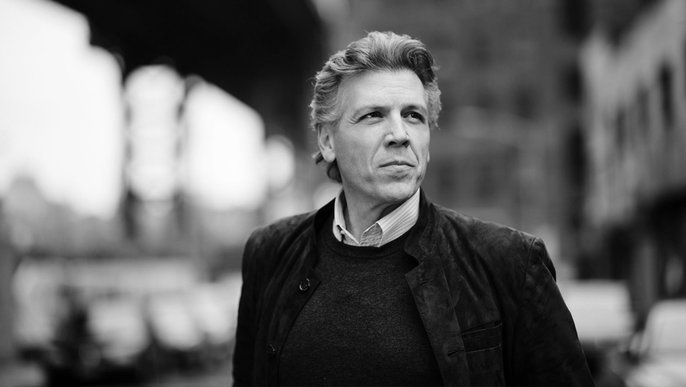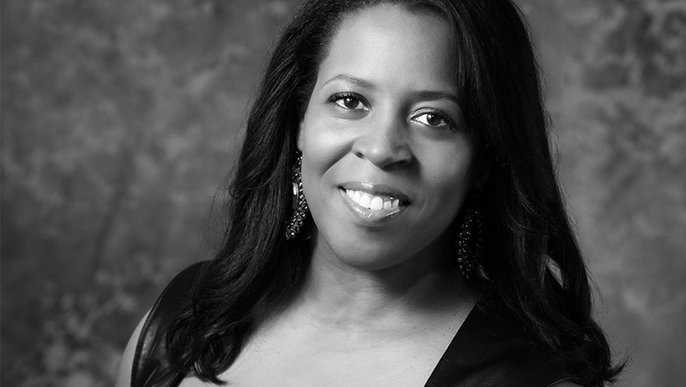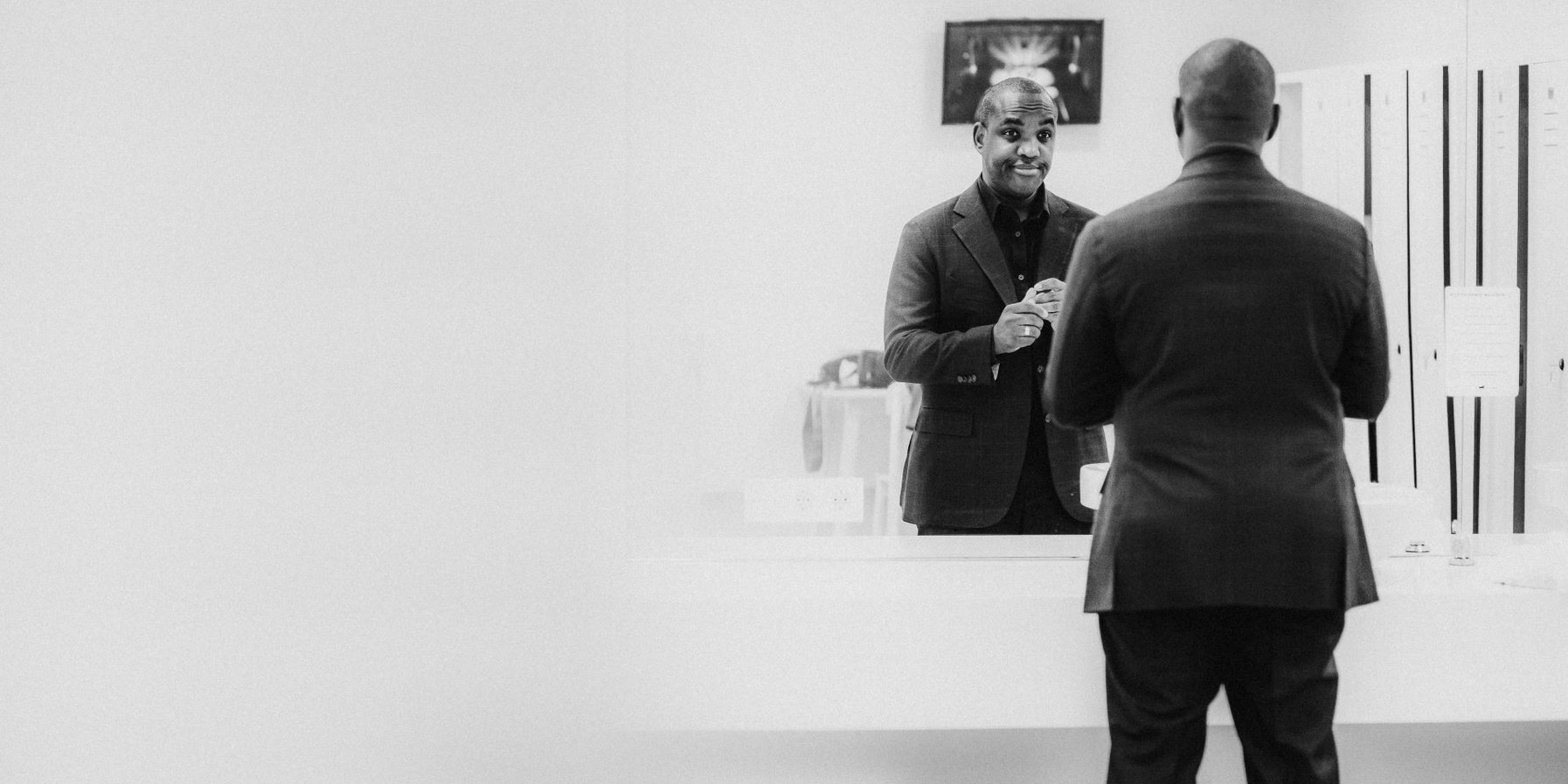»Hope in the Night«: The title of the third part of Thomas Hampson’s »A Celebration of Black Music« is taken from the middle movement of William Levi Dawson’s »Negro Folk Symphony«. Dawson made use of well-known spiritual tunes in this pioneering work, and the premiere was accorded an enthusiastic welcome in 1934. The first half of this concert programme revolves entirely around the genre of the traditional spiritual, be it gentle arrangements of the originals, like those by Hale Smith, or as inspiration for the operas of William Grant Still. The influence of spirituals is heard in both vocal or instrumental pieces on this programme: rhythms and melodies get under one’s skin with their portraits of shattered dreams and dreams come true, of farewells and new starts, of courage and hope. An evening full of superb musical treasures!
Note: All Hamburg International Music Festival 2021 concerts are available to stream free of charge. Once premiered, each concert stream can be accessed for the whole festival period.
Thomas Hampson: A Celebration of Black Music
Performers
The Deutsche Kammerphilharmonie Bremen
Louise Toppin soprano
Leah Hawkins soprano
Lawrence Brownlee tenor
Thomas Hampson baritone
conductor Roderick Cox
Programme
»Hope in the Night«
Duration: approx. 120 minutes
-
Full programme
Valerie Coleman
Umoja / Anthem for UnityWilliam Grant Still
Golden Days / from the opera »Costaso«
A Dream Wasted / from the opera »Highway One, USA«
What does He know of Dreams / from the opera »Highway One, USA«
Duett aus der Oper »Highway One, USA«George Walker
Lyric for StringsHale Smith
Four Negro Spirituals
There Is a Balm in GileadMargaret Bonds
He’s Got the Whole World in His HandsWilliam Levi Dawson
Negro Folk Symphony
The Artists
Louise Toppin – soprano

-
About Louise Toppin
Louise Toppin has received critical acclaim for her operatic, orchestral, and oratorio performances in the United States, Europe, South America, Asia, New Zealand, Cuba, Puerto Rico and the Caribbean. She has appeared in recital on many concert series including Carnegie Hall, Kennedy Center, Broadway’s Hudson Theater, and Lincoln Center.
Her recent performances include the 150th celebration of the ratification of the 13th amendment for Congress and President Obama at the U.S. Capitol; a performance in Havana, Cuba with the women’s orchestra Camerata Romeu and the opening of the Smithsonian’s African American Heritage Museum. Currently, she tours in »Gershwin on Broadway« with Joseph Joubert, piano and Robert Sims, baritone.
Louise Toppin has recorded eighteen compact disks of primarily American Music. Her newest releases are »Songs of Love and Justice« and »Summer.Life.Songs« with songs by Adolphus Hailstork and Duos on African American vocal chamber music.
As a musicologist and scholar, Louise Toppin has edited numerous scores of works by Margaret Bonds and Adolphus Hailstork. She has lectured on the music of African American composers and has appeared on NPR’s »All Things Considered«, on national conventions and on college campuses including Harvard, Tufts, and Duke.
As the co-founder and director of the George Shirley Vocal Competition and the non-profit organisation Videmus, Louise Toppin encourages the performance and scholarship of African American compositions by students and scholars. She is also the founder of the africandiasporamusicproject.org that is a research tool to locate the repertoire of composers of the African Diaspora from the 1600s to the present. She is currently Professor of Music at The University of Michigan.
Leah Hawkins – soprano

-
About Leah Hawkins
A native of Philadelphia and recent graduate of the Lindemann Young Artist Development Program at The Metropolitan Opera, soprano Leah Hawkins is regarded as one of the most promising singers of her generation.
She began the 2020–2021 season with a debut at the Bayerische Staatsoper in Marina Abramović’s »7 Deaths of Maria Callas« as Desdemona – a role that she will reprise for debuts at Deutsche Oper Berlin, Opéra national de Paris, Greek National Opera, and Teatro del Maggio Musicale Fiorentino.
Recent performances at The Metropolitan Opera include »Porgy & Bess« (Strawberry Woman), »Pique Dame« (Masha) and »Aida« (High Priestess). She made her Colorado Symphony debut in the Verdi »Requiem«, gave a recital at the Park Avenue Armory, and returned to the National Symphony Orchestra for a Labor Day Concert.
On the concert stage Leah Hawkins has appeared with orchestras including Yale Philharmonia, New Haven Symphony Orchestra, Baltimore Symphony Orchestra, and Philadelphia Orchestra. She performed in venues such as the Bolshoi Theatre in Moscow, The White House, singing for the President of France, and in Accra, Ghana.
Leah Hawkins has received numerous awards including the Sullivan Foundation Award and the Richard F. Gold Career Grant from Washington National Opera.
Lawrence Brownlee – tenor

-
About Lawrence Brownlee
Lawrence Brownlee is a leading figure in opera, both as a singer on the world’s top stages, and as a voice for activism and diversity in the industry. Captivating audiences and critics around the globe, he has been hailed as »one of the most in-demand opera singers in the world today« (NPR). He is a regular guest in many of the leading opera houses such as the Metropolitan Opera, Teatro alla Scala und the Bayerische Staatsoper. In addition, he performs in concert halls including Carnegie Hall New York and Wigmore Hall London
Highlights of Lawrence Brownlee’s 2020-21 season include Don Ramiro in »La Cenerentola« at Palau de les Arts Reina Sofía, his role debut as Edgardo in »Lucia di Lammermoor« at New National Theatre Tokyo and Arturo in »I Puritani« with Teatro dell’Opera di Roma. In concert, Brownlee performed at Lyric Opera of Chicago, Houston Grand Opera and Opera Philadelphia.
A passionate advocate for diversity initiatives, Lawrence Brownlee works with companies and engages civic organizations to create programs seeking to expand opera audiences. His critically-acclaimed solo recital program »Cycles of My Being«, a song cycle that centers on the black male experience in America today, has toured across the country three times.
Lawrence Brownlee has emerged as a pivotal voice in classical music’s shift toward digital programming and the resurgence of conversations around racial justice. In May 2020, he launched »The Sitdown with LB,« a weekly Facebook Live series which explores the experience of being an African-American opera singer. Since April 2020 he has also hosted the video series »Coffee and a Song,« in which he invites artist friends to perform interpretations of art-songs from the intimacy of their own homes.
Thomas Hampson – baritone

-
About Thomas Hampson
Thomas Hampson, America’s foremost baritone, has received international honors and awards for his captivating artistry and cultural leadership. Lauded as a Metropolitan Opera Guild »Met Mastersinger« and inducted into both the American Academy of Arts and Sciences and Gramophone’s »Hall of Fame,« Hampson is one of the most respected and innovative musicians of our time. With an operatic repertoire of over 80 roles sung in all the major theaters of the world, his discography comprises more than 170 albums, which include multiple nominations and winners of the Grammy Award, Edison Award, and the Grand Prix du Disque.
Hampson is a Distinguished Visiting Artist of Voice at the University of Michigan, School of Music, Theatre, and Dance, and an honorary professor on the Faculty of Philosophy of the University of Heidelberg. He holds honorary doctorates from Manhattan School of Music, the New England Conservatory, Whitworth College, and San Francisco Conservatory and is an honorary member of London’s Royal Academy of Music. He carries the titles of Kammersänger of the Wiener Staatsoper and Commandeur dans l’Ordre des Arts et des Lettres of the Republic of France, and was awarded the Austrian Medal of Honor in Arts and Sciences.
Thomas Hampson enjoys a singular international career as an opera singer, recording artist, and »ambassador of song,« maintaining an active interest in research, education, musical outreach, and technology, continually expanding his pedagogical activities. He is the Artistic Director of the Heidelberg Lied Academy, and collaborates with the Barenboim-Said Academy Schubert Week in Berlin each year. His recurring international master class schedule is a continuing online resource of the Manhattan School of Music, Medici.tv, and The Hampsong Foundation livestream channel.
Roderick Cox – conductor

-
About Roderick Cox
Als Gewinner des prestigeträchtigen Internationalen Dirigentenwettbewerbs Sir Georg Solti eroberte Roderick Cox vor einigen Jahren die großen Bühnen der Welt. Seither ist der amerikanische Dirigent ein gefragter Gast bei renommierten Orchestern wie dem Los Angeles Philharmonic, dem Deutschen Symphonie-Orchester Berlin oder dem Philharmonia Orchestra in London. Dabei erntet er Lobeshymnen der internationalen Kritik. Als »Wegbereiter« und »Vorreiter« feiert die Presse den Künstler, der sich seit drei Jahren mit der eigens gegründeten Roderick Cox Music Initiative für die Förderung afroamerikanischer Nachwuchstalente einsetzt, ihnen Instrumente finanziert sowie Musikunterricht und intensive Sommercamps ermöglicht.
Neben seinen Erfolgen auf der Konzertbühne etabliert sich der in Berlin lebende Musiker auch als gefragter Operndirigent. Einladungen führten ihn unter anderem an die Houston Grand Opera mit Georges Bizets »Les pêcheurs de perles« und an die San Francisco Opera mit Gioachino Rossinis »Il barbiere di Siviglia«. In Georgia geboren, absolvierte Roderick Cox sein Studium an der dortigen Columbus State University sowie an der Northwestern University in Illinois. Schon in den ersten Jahren nach seinem Abschluss durfte er sich über bedeutende Auszeichnungen freuen, darunter der Erste Preis beim Robert J. Harth Dirigierwettbewerb des Aspen Music Festivals 2013.
Die Deutsche Kammerphilharmonie Bremen

-
About the orchestra
Die Deutsche Kammerphilharmonie Bremen ist eines der international führenden Orchester und begeistert mit ihrem einzigartigen Musizierstil welt-weit ihr Publikum. Künstlerischer Leiter ist seit 2004 der estnische Dirigent Paavo Järvi. Ein Höhepunkt ihrer langjährigen erfolgreichen Zusammenarbeit war das Beethoven-Projekt, auf das sich Dirigent und Orchester sechs Jahre lang konzentrierten und das weltweit von Publikum und Presse als maßstabsetzend bejubelt wurde. Mit dem gesamten Zyklus der neun Sinfonien begeisterten sie unter anderem in Paris, Tokio, Straßburg, Warschau, São Paulo sowie beim Beethovenfest Bonn und den Salzburger Festspielen.
Auch die CD-Einspielungen wurden von Kritikern weltweit gefeiert. Darüber hinaus entstand eine mit zahlreichen Preisen ausgezeichnete TV- und DVD-Dokumentation des Projekts. Im Anschluss setzten sich Die Deutsche Kammerphilharmonie Bremen und Paavo Järvi ebenso erfolgreich mit den Sinfonien Robert Schumanns auseinander. Aktuelles Großprojekt sind die Sinfonien von Johannes Brahms, die mittlerweile vollständig auf CD vorliegen. Schon die 2017 erschienene CD mit der Zweiten Sinfonie und den Ouvertüren, ausgezeichnet mit dem Opus Klassik, ist laut SWR ein »rhetorischer Jungbrunnen für den ›alten‹ Brahms«. Ein besonderes Highlight bildete die Aufführung seines Deutschen Requiems im Bremer Dom 2018 anlässlich des 150. Jubiläums der Uraufführung in Bremen. Die TV- und DVD-Dokumentation »The Brahms Code« war laut der Jury des Preises der Deutschen Schallplattenkritik der beste Musikfilm des Jahres 2020.
Daneben widmen sich die Orchestermitglieder mit großem persönlichem Engagement den gemeinsamen Projekten mit der Gesamtschule Bremen-Ost, in deren Gebäudekomplex sich das Probendomizil des Orchesters befindet. Dieses »Zukunftslabor« wurde mit mehreren Auszeichnungen bedacht, darunter der Zukunftsaward 2007 als »beste soziale Innovation«. Die Musiker verfolgen hier das Ziel, mittels Musik individuelles Wachstum zu fördern. 2009 ernannte der Staatsminister für Kultur die Zusammenarbeit zum Modellprojekt. 2008 wurde der Deutschen Kammerphilharmonie Bremen für die gelungene Verbindung von Unternehmertum und Kultur der renommierte Deutsche Gründerpreis verliehen. Als erstes Orchester erhielt sie 2010 für ihr editorisches Gesamtwerk die Ehrenurkunde des Preises der deutschen Schallplattenkritik; Deutschlandfunk Kultur rief die Kammerphilharmonie 2016 zum ersten »Orchester des Jahres« überhaupt aus; beim Rheingau Musik Festival war sie 2019 das erste Residenzorchester und wurde mit dem Rheingau Musik Preis ausgezeichnet. Mit der Elbphilharmonie und der Laeiszhalle ist die Deutsche Kammerphilharmonie Bremen bereits seit vielen Jahren durch eine eigene Konzertreihe eng verbunden. Ihren Einstand in der Elbphilharmonie feierte sie im März 2017, seither ist sie regelmäßig in Hamburg zu Gast.
Hope in the Night :The programme
Spirituals grew out of a terrible and uniquely North American history of slavery. Indeed, they can be found nowhere else. Unlike in Latin America, which considered it more economically advantageous to replenish their populations from West Africa after working people to death, North American slaveholders encouraged their enslaved Africans to have children, thus creating a much larger native-born population and, eventually, an emerging and sustained African American culture.
A catholic Latin America permitted a religious hybridity between West African religions and the catholic culture of saints (e.g., voodoo in Haiti) in a way that a staunchly protestant North America did not. It is out of this protestant North American musical tradition that spirituals emerged. Uniquely West African in their polyrhythmic nature but also greatly influenced by Anglo-American hymnody, African American spirituals retold tales of the Old and New Testament. Many spirituals shared triumphant stories of ordinary men defeating powerful enemies, such as Daniel in the lion’s den, Jonah and the whale, or David fighting Goliath.

For the longest time, spirituals were part of Black everyday life, performed at camp meetings, hummed while working, or sung as code to signal a planned escape. It was only in the late nineteenth century—after the abolition of slavery in the 1860s—that spirituals became something performed in a formal concert. The Fisk Jubilee Singers were the first musical ensemble to bring them around the world—first, to England in 1873, and then to Germany in 1877, where the ensemble resided for ten months singing the music of their ancestors. At the Royal Palace in Potsdam, Crown Princess Victoria (1840-1901) burst into tears once the ensemble began to sing. She apologized after their concert for openly weeping so much. What moved Crown Princess Victoria then, and what continues to move us today, are some of the core beliefs that spirituals express in beautiful harmony: hope, strength, and resilience.
Those themes are on display in this evening’s concert program. Valerie Coleman’s (b. 1970) »Umoja« is a ten-minute joyful ode to the Swahili word, »unity«. The first composition by a living Black woman composer to be performed by the Philadelphia Orchestra when it premiered in 2019, it races quickly by and has the feel of a concerto grosso at times.

The music of William Grant Still (1895-1978) and Pulitzer-prize winner George Walker (1922-2018) are equally vibrant and inspirational. Although William Grant Still is most known for his Afro-American Symphony (1930), which was the first symphony by a Black American composer to be performed by a major orchestra, he was an opera composer through and through. He wrote eight different operas over the course of his lifetime. Some of his most glorious opera arias are on this concert program, including »Golden Days« (1957), which sounds as lush and beautiful as the sunrise.
George Walker’s »Lyric for Strings« (1946) is just as glorious. Reminiscent perhaps of Samuel Barber’s (1910-1981) »Adagio for Strings« (1936), it sweeps you off your feet with its tense, dramatic melody. The second half of the concert program focuses on the spirituals from which we have such a rich and diverse cornucopia of African American art music today. Hale Smith’s (1925-2009) orchestral arrangement of four spirituals takes full advantage of the large ensemble to give these important songs the rich and transcendent musical settings they deserve.

Margaret Bonds’s (1913-1972) classic arrangement, »He’s Got the Whole World«—sung by countless African American opera singers such as Kathleen Battle (b. 1948) and the late, great Jessye Norman (1945-2019)—can rouse any audience to its feet.
Of the three African American symphonies to break the racial barrier and premiere with major orchestras—William Grant Still’s Afro-American Symphony (1931), Florence B. Price’s (1887-1953) Symphony in E Minor (1933), and William Dawson’s (1899-1990) Negro Folk Symphony (1934)—it is William Dawson’s Negro Folk Symphony that remains the least performed, even though Dawson, unlike Still, actually incorporated spirituals into his symphony. At the time of its premiere, however, Dawson received near-unanimous praise. »It is classic in form but Negro in substance«, the great titan Alain Locke (1885-1954) wrote. It built on the great symphonic tradition but, »more than anything else, it is unimpeachably Negro.«

Tonight’s concert is part of a growing sea change demanding we bring Dawson’s symphony back. Comprised of three movements, the symphony does not quote singable melodies from spirituals but rather flexibly incorporates them into nearly every aspect of the work. At the heart of the symphony is the theme for tonight’s concert: »hope in the night«. Dawson described the second movement as an »atmosphere of the humdrum life of a people whose bodies were baked by the sun and lashed with the whip for two hundred and fifty years; whose lives were proscribed before they were born.« But in the darkness, hope springs eternal.
Text: Kira Thurman
In collaboration with the Hampsong Foundation
Supported by the Kühne Foundation, the Hamburg Ministry of Culture and Media, Stiftung Elbphilharmonie and the Förderkreis Internationales Musikfest Hamburg
last updated: 04.06.2021


















